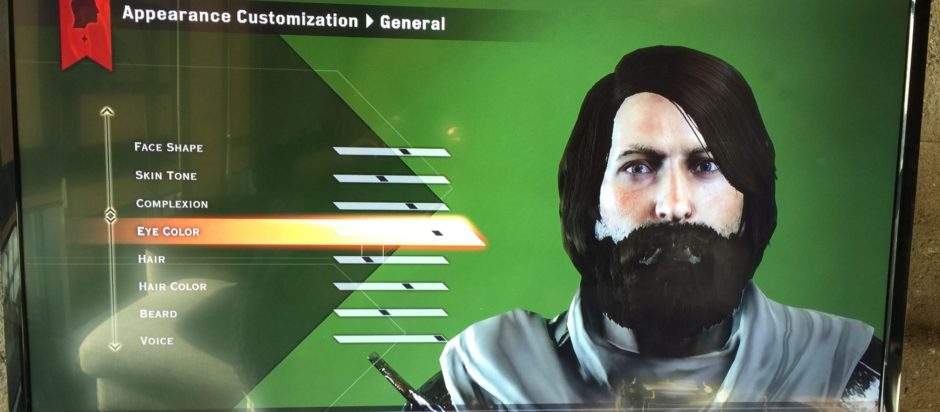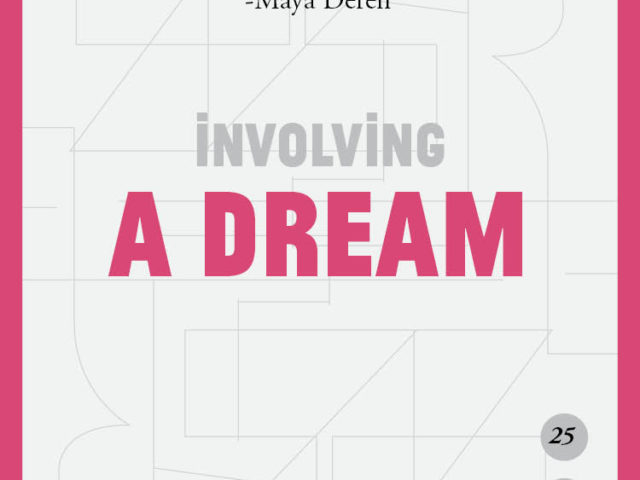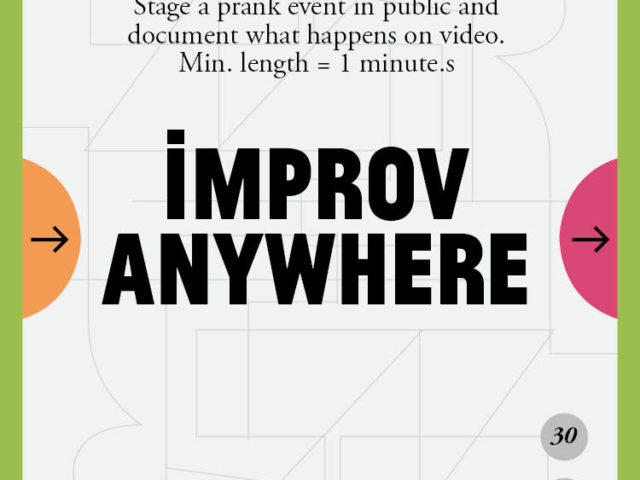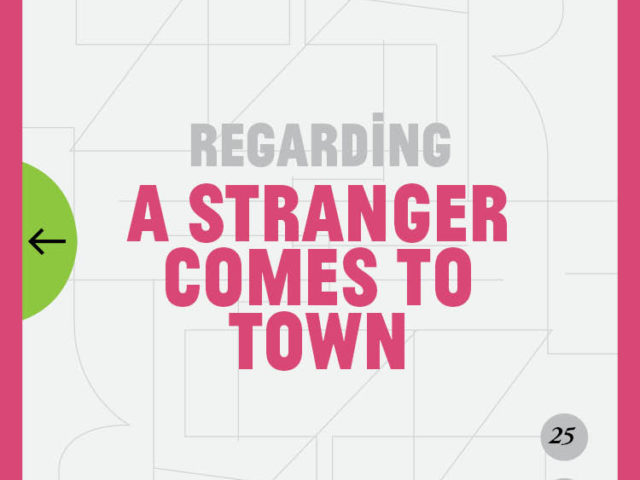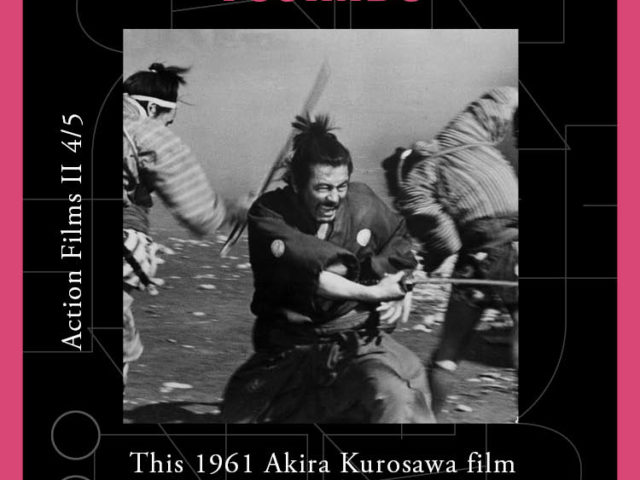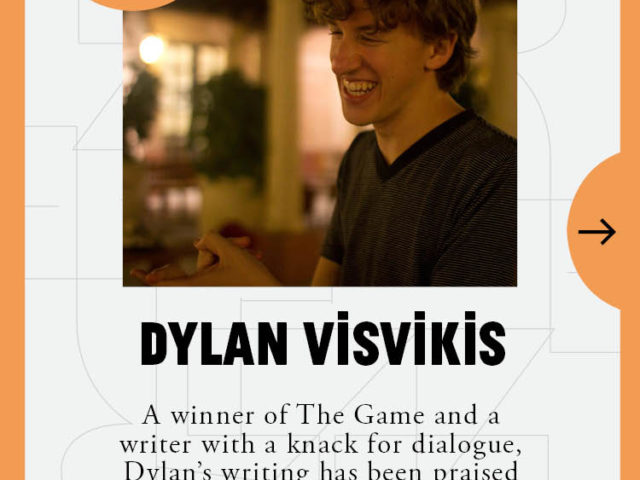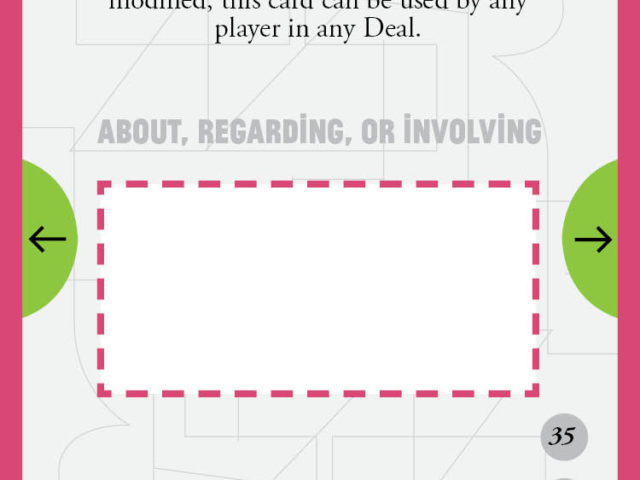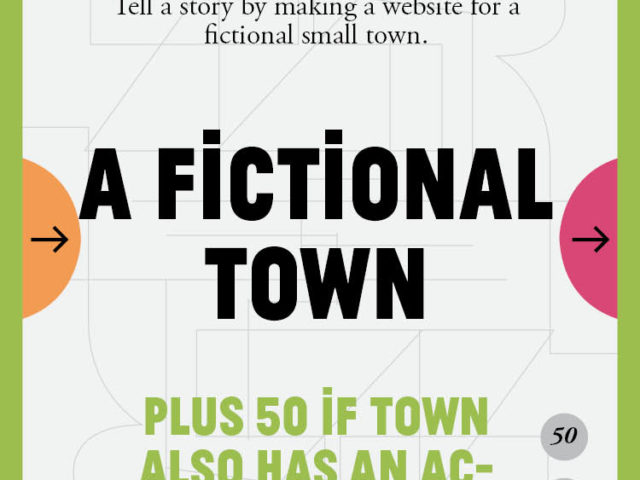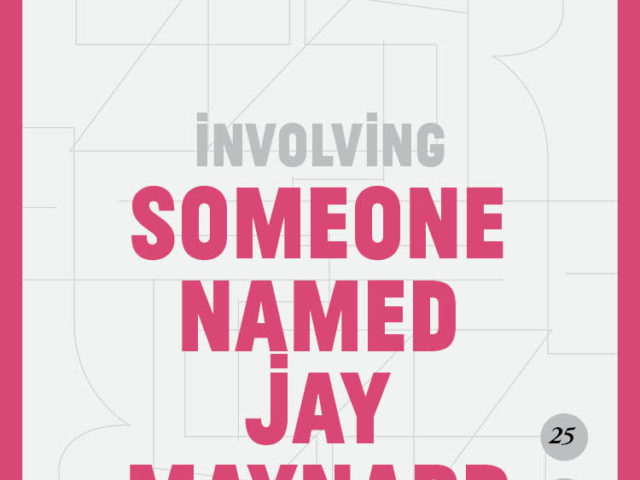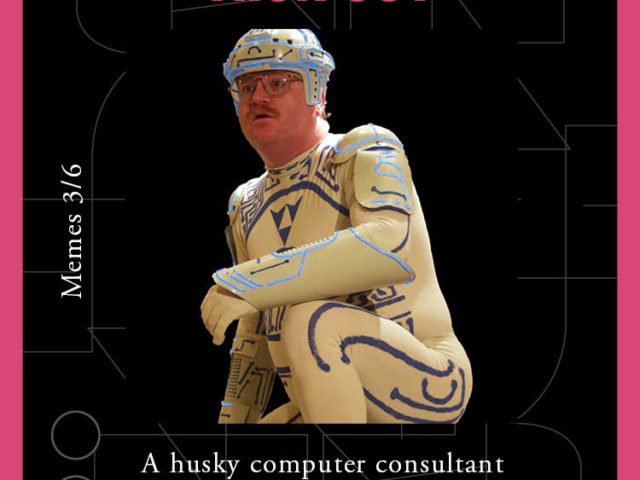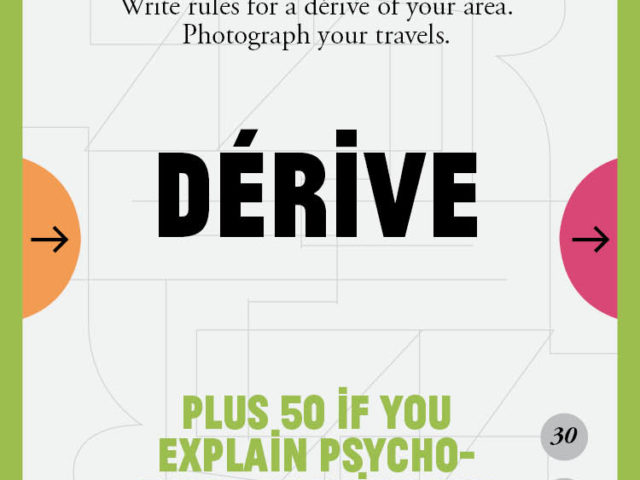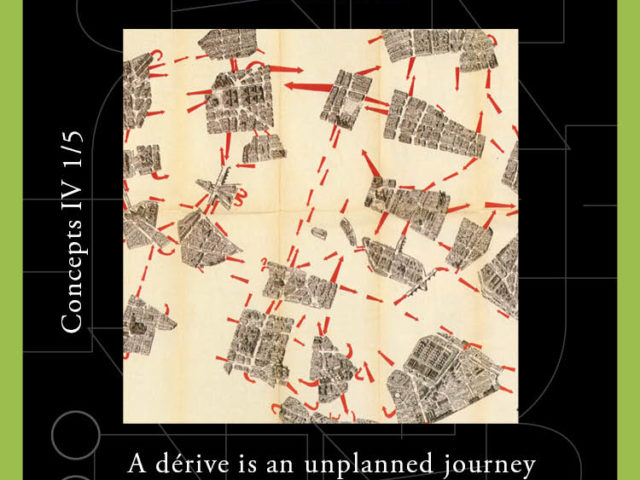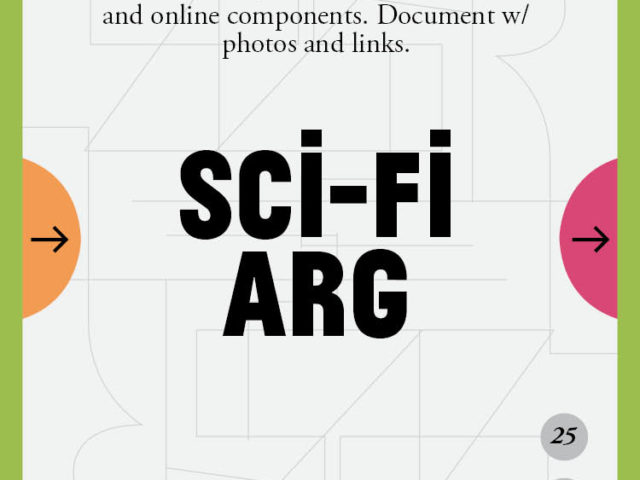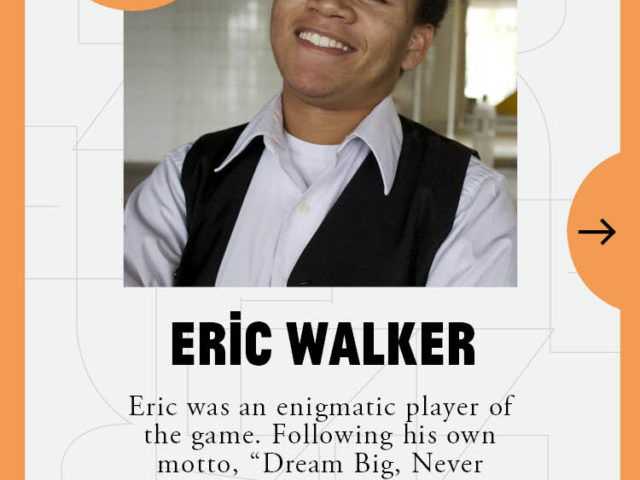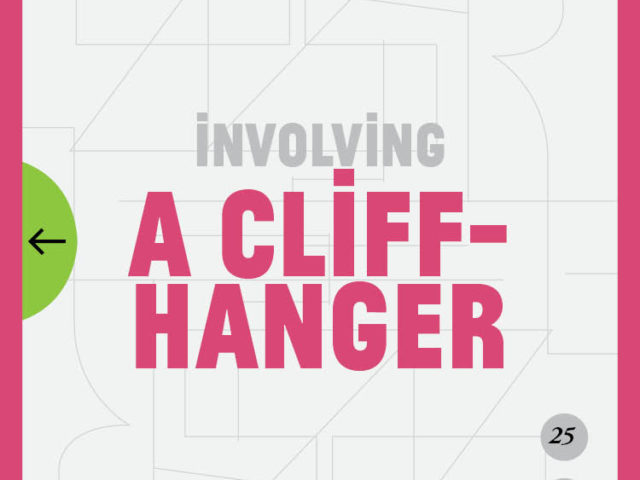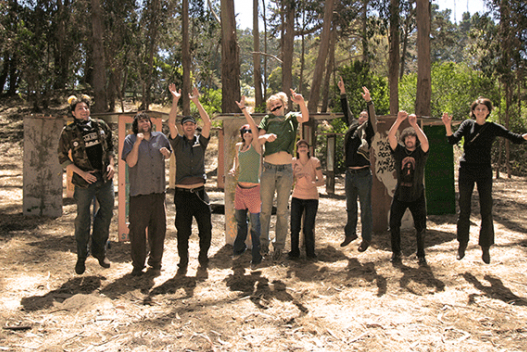
[intro]Sam Lavigne is the co-founder (with Ian Kizu-Blair) of Situate, a design and consulting studio that produces “games that inspire people to create, explore and connect online and in the real world.” Sam’s groundbreaking work in collaborative production game design has set the standard for challenge-driven social media-making games. The interview below was conducted via email on July 27, 2011.[/intro]
A lot of different disciplines have been converging on pervasive gaming (or whatever you want to call it) over the past few years. What’s your trajectory into this space?
Ian and I have always loved playing games. We first started making games when we were undergrads at the University of Chicago; at the time, I was studying Comparative Literature, and Ian was studying English. We read about The Beast and were inspired by its ability to bring people together to solve seemingly impossible problems. We got an arts grant from the U of C to make a similarly structured (but entirely noncommercial) game called Helen Chanam, in which players were tasked with finding a missing art student. Shortly afterward, we moved to San Francisco and created SF0. Our goal in SF0 was to let players experience what we had experienced while making our first game: to create adventure and mystery for each other. In SF0 everyone is a player, but everyone is also a game designer. Since our success with SF0, we’ve started a company called Situate and have continued to make games that blur the line between everyday life and game.
There are quite a few urban derive projects out there, but one of the things that’s made SF0 so special is the way that you use a pretty tight set of game mechanics to structure and drive the players’ creative interventions. One line from the game’s About page stands out in this regard: “You may find that your own willingness to interact with the city in new ways varies linearly with relation to your Score.” Why did you choose to structure things with rules and point systems?
Games provide an incredibly compelling vehicle for recontextualizing normal spaces. When we play a game, we let go of our everyday constraints, and our everyday motivations for action. Games open up new possibilities, and new ways of interacting with the world and each other, especially when played offline. Rules and points are an invaluable part of any game, and a key component in allowing us to behave playfully. We can ignore the rules of our everyday lives by embracing the alternate rules of the game. Points both help players track their progress through the game world, and provide a pleasant motivation for continuing to play. (Although with SF0, we found that many of the most advanced players didn’t really care that much about their score after a certain point.)
Collaborative production games have a long pre-digital history. For example, some of the spirit of SF0 seems to trace its origins to Fluxus’ “event scores” and other participatory performance activities and games. What are some of the big inspirations for you from the world of analog games and interventions?
We’re greatly inspired by the Situationists; so much so, in fact, that one of the groups in SF0 is called the BART Psychogeographical Association. We were particularly inspired by the Situationist critique of urban spaces structured for cars and consumerism, the concept of a revolution of everyday life, and resisting the spectacle through everyday direct action and modified behaviors. That is not to say, however, that SF0 is a Situationist game-the Situationists are simply a major inspiration.
InterroBANG and Flashback are both projects intended to be engaged with by young people, students and teachers and as extensions to more formal classroom activities. Did this make the design process significantly different for you and your team? Why or why not?
The design process was actually pretty similar. We tried to structure InterroBang and Flashback in the same way that we structured SF0: give players fun and exciting things to do, and inspire them to create fun and adventure for each other. We wanted the games to act as democratizing forces, allowing students to review each others’ work, and even shape curriculum by giving them the ability to create new missions for the games. We believe real learning can only happen when you’re excited about the topic at hand, so we focused on inciting passion for subject areas rather than trying to teach specific dates and times. In Flashback, we wanted to present history as a living entity, something you participate in directly by taking action in the world.
Can you briefly describe these two projects? What is the main gameplay and what are some key observations about the ways in which people play them? In hindsight, is there something you think that works particularly well and in turn, anything you would change?
Both games have almost the same gameplay as SF0. You start at Level 1 with 0 points. You get points and progress through a series of levels by completing missions in the real world, and posting documentation of what you did online. Other players vote and comment on your work. You also have the ability to create missions for other players to complete. Both projects targeted high school-age students and younger. Flashback was about American history and civics, and InterroBang was more about general problem solving. A quote from Flashback’s about page sums it up nicely: “Flashback is a game in which you complete real-world missions with the aim of de- and re-constructing American History and connecting with others to change the world. You begin at level 1 with 0 points. As you complete missions and advance in level you gain the skills and historical knowledge you’ll need to develop strategies for overcoming persistent historical injustices and defeating your class enemies.”
We were very excited to see how creative and engaged students were in both projects–we got some truly amazing results. Most of the kids who played the games loved them, and I think part of the reason was that we gave them more freedom and space to be expressive than is usually possible in a classroom. We also learned that the games worked best in classrooms with excellent teachers who took time to work with their kids. If I could change anything about these games it would be to give students even more freedom and trust, and provide more support to participating teachers.
Do you think that location-awareness poses unique or new redefinitions of activism?
This is a very interesting question that I don’t really feel qualified to answer. Knowing and being connected to your surroundings is certainly very important. That said, when we’re online it doesn’t really matter where we’re physically located. SF0, for example, is called “SF0” because we initially thought it would only be for residents of San Francisco. Instead, people started playing it from all over the world and SF0-like communities sprouted up in many unusual and unexpected places.
What is your perspective on “gamification” – both generally, and more specifically, in context to civic society and engagement?
I believe that games should fun and stimulating more than anything else. I love that people want to make more and more interactions playful or “gameful” but I think the current trend of trying to add a game layer to every possible activity is worthless unless the resulting games are high quality. Just because something can be a game doesn’t mean it needs to be.
In terms of civic society and engagement: I believe that games can improve the world in the same way that a great work of art can improve the world. Games, like art, have the capacity to teach us, challenge us, and reveal the world to us in unexpected ways. Both games and art can defamiliarize the world, make it new, and this I think is the starting point for all forms of change.
[This interview, co-written with Susana Ruiz, originally appeared in Volume 3, Issue 3 of the International Journal of Learning and Media (MIT Press), as a part of the “Civic Tripod” report prepared by Susana Ruiz, Ben Stokes, and me.]
